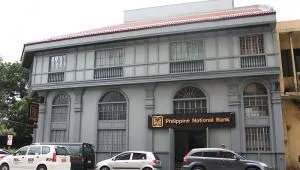
Structural woes feared to derail Philippine banks' momentum
Despite sufficient capitalization and ample liquidity.
According to a report by Standard & Poor's, Philippine banks are riding the tide of one of the fastest-moving economic upswings among emerging-market economies, but long-standing challenges threaten to derail their momentum.
The Philippines' seven largest banks have the lion's share of the nation's fragmented banking industry, commanding almost two-thirds of its total banking assets. The article, titled "A Snapshot of The Philippines' Top Seven Banks," discusses the relative strengths and weaknesses of these leading banks.
It notes that banks in the Philippines have sufficient capital and liquidity to take advantage of the healthy economic growth. The following reports on individual banks discuss the bank-specific key credit factors: Land Bank of the Philippines; Banco De Oro Unibank Inc.; Metropolitan Bank & Trust Co.; Bank of the Philippine Islands; and Rizal Commercial Banking Corp.
"Philippine banks are well positioned to meet the new Basel III requirements, with capital ratios that are comfortably above the regulatory minimum," said Standard & Poor's credit analyst Ivan Tan. "Philippine banks also benefit from healthy funding positions and maintain a sizable amount of liquid assets, the bulk of which is in the form of cash and domestic government bonds."
The reports note that despite banks' sufficient capitalization and ample liquidity, structural weaknesses continue to cast a shadow over the banking system. Consolidation in the Philippines' overcrowded banking system has been an uphill task due to its closely held family ownership structure. In addition, bank lending is heavily skewed toward corporates, particularly to large local conglomerates. Banks face significant concentration risks to the same handful of conglomerates, which follow broadly similar business models.
"A narrow revenue profile and high operating costs constrain the profitability of Philippine banks," said Mr. Tan. "Philippine banks depend heavily on interest income from domestic corporate lending, with little diversification in terms of geography and business lines such as bank assurance and wealth management."
According to Standard & Poor's, it remains to be seen whether Philippine banks can emerge as regional champions ahead of the impending ASEAN 2015 integration, which envisages a single market and production base. Member countries have gradually started to progressively liberalize restrictions in the region's still-protected banking sector. Philippine banks will need scale to deal with more intense competition from potential new entrants.












 Advertise
Advertise










